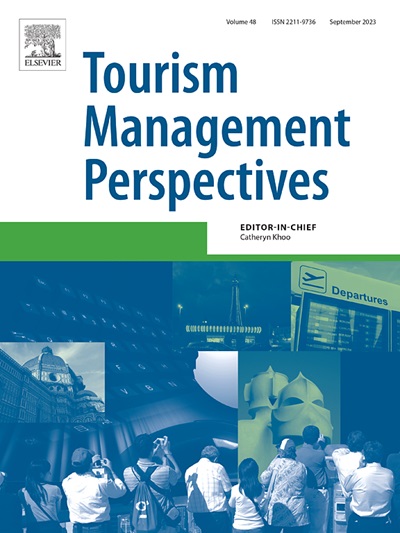财政激励和旅游动机:了解可持续旅游的驱动因素
IF 6.9
2区 管理学
Q1 HOSPITALITY, LEISURE, SPORT & TOURISM
引用次数: 0
摘要
本研究考察了经济激励作为外在激励因素如何有效地推动游客走向环保行为,即使在亲环境动机可能不是内在的情况下。该研究采用了一项随机对照试验,涉及180名游客。治疗组收到了一个特别设计的移动应用程序,为参与环保活动提供经济奖励,例如可持续活动的频率和类型、在当地企业的消费、参与和消费社区旅游活动,以及亲环境导向。对照组收到的是一个没有经济奖励的标准应用程序。结果显示,治疗组在可持续行为和对当地经济的支持方面有显著改善。调查结果包括可持续活动的频率和种类增加,对当地企业的支出增加,以及环保态度的增强。根据克朗普顿的推拉理论,该研究将这些结果解释为外部经济激励(拉因素)如何激活和加强游客的内部亲环境动机(推因素)。该研究为旨在实施有效的基于激励的旅游部门可持续发展战略的政策制定者和从业者提供了见解。本文章由计算机程序翻译,如有差异,请以英文原文为准。
Financial incentives and tourist motivation: Understanding drivers of sustainable tourism
This study examines how financial incentives, as extrinsic motivators, can effectively nudge tourists towards eco-friendly behavior, even in cases where pro-environmental motivations may not be intrinsic. The study uses a randomized control trial involving 180 tourists. The treatment group received a specially designed mobile app providing financial rewards for engaging in eco-friendly activities, such as frequency and type of sustainable activities, spending on local businesses, participation and spending in community-based tourism activities, and pro-environmental orientation. The control group received a standard app without financial incentives. Results showed significant improvements in sustainable behaviors and support for local economies among the treatment group. The findings include increased frequency and variety of sustainable activities, higher spending on local businesses, and enhanced pro-environmental attitudes. Drawing on Crompton's Push and Pull Theory, the study interprets these results as showing how external financial incentives (pull factors) can activate and reinforce tourists' internal pro-environmental motivations (push factors). The study provides insights for policymakers and practitioners aiming to implement effective incentive-based strategies for sustainability in the tourism sector.
求助全文
通过发布文献求助,成功后即可免费获取论文全文。
去求助
来源期刊

Tourism Management Perspectives
Multiple-
CiteScore
15.60
自引率
3.40%
发文量
99
审稿时长
59 days
期刊介绍:
Tourism Management Perspectives is an interdisciplinary journal that focuses on the planning and management of travel and tourism. It covers topics such as tourist experiences, their consequences for communities, economies, and environments, the creation of image, the shaping of tourist experiences and perceptions, and the management of tourist organizations and destinations. The journal's editorial board consists of experienced international professionals and it shares the board with Tourism Management. The journal covers socio-cultural, technological, planning, and policy aspects of international, national, and regional tourism, as well as specific management studies. It encourages papers that introduce new research methods and critique existing ones in the context of tourism research. The journal publishes empirical research articles and high-quality review articles on important topics and emerging themes that enhance the theoretical and conceptual understanding of key areas within travel and tourism management.
 求助内容:
求助内容: 应助结果提醒方式:
应助结果提醒方式:


